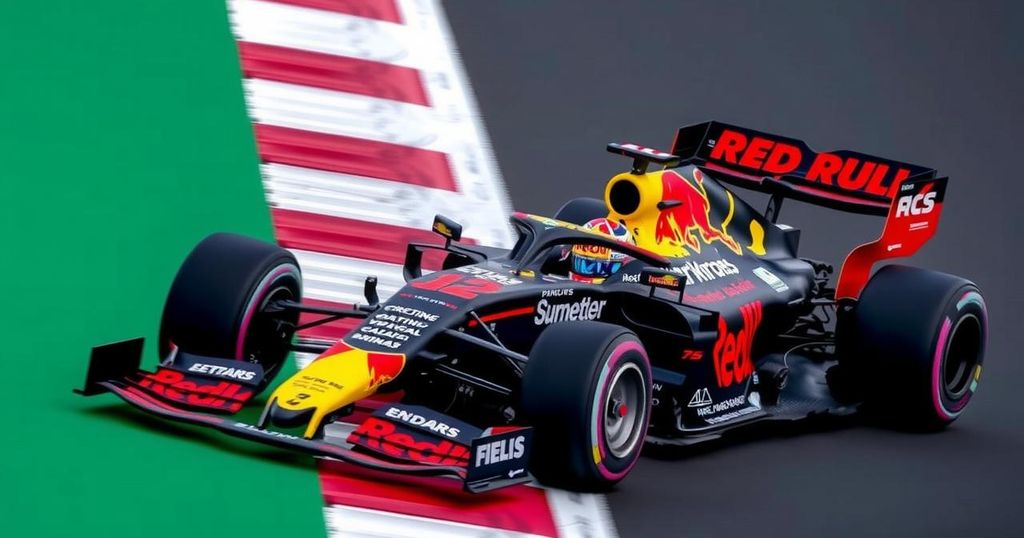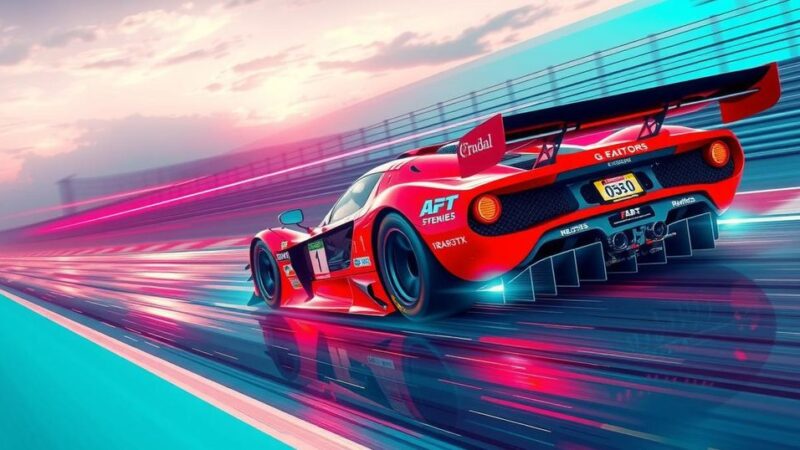Max Verstappen is under investigation for a possible virtual safety car rule infringement during the Brazilian GP sprint race, where he finished third. Despite minimizing point losses to Lando Norris, who won the race with the help of his teammate, Verstappen’s driving during the VSC period has drawn scrutiny. He also faces a five-place grid penalty for a previous engine change.
Max Verstappen, the leader in the Formula 1 championship, is currently facing an investigation following a potential breach of virtual safety car (VSC) regulations during the Brazilian Grand Prix sprint race. In this event, Verstappen took third place, minimizing the impact of his closest competitor, Lando Norris, who won the race with assistance from his McLaren teammate, Oscar Piastri. Although Verstappen only lost two points to Norris, his actions during the deployment of a virtual safety car, triggered by the Haas driver Nico Hulkenberg’s car stopping trackside, are under scrutiny. After the conclusion of the 24-lap sprint, Red Bull Racing’s team principal, Christian Horner, defended Verstappen’s actions, stating that he saw nothing wrong with his driving. Verstappen is already facing a five-place grid penalty for the upcoming Brazilian Grand Prix due to an engine change that exceeded his allocation. As it stands, Verstappen leads the championship standings by 45 points, despite Red Bull being less competitive compared to McLaren and Ferrari in recent events. Starting from fourth, Verstappen managed to overtake Charles Leclerc, finishing behind the two McLaren drivers who strategically swapped places to benefit Norris’s title bid.
The investigation stems from the implementation of the virtual safety car during Formula 1 races, which is designed to protect drivers on the track in the event of a hazard. Regulations dictate that drivers must not operate their vehicles in a manner that could be considered excessively slow, erratic, or potentially dangerous during VSC conditions. The specific rules in question include: (1) Rule 56.3 asserts that no car may be driven unnecessarily slowly or erratically during VSC procedures. (2) Rule 56.5 requires that all competing cars reduce their speed to comply with minimum time limits set by the FIA ECU. Verstappen’s situation arises from concerns that he may not have adequately followed these protocols during the sprint, leading to the current investigation.
In summary, Max Verstappen’s potential breach of VSC regulations during the Brazilian Grand Prix sprint race is under investigation, following a strong performance that saw him finish third. Despite leading the championship and minimizing point losses to Lando Norris, he faces added scrutiny due to existing penalties. The investigation emphasizes the importance of adherence to Formula 1 regulations, particularly in relation to safety protocols during virtual safety car deployments.
Original Source: www.autosport.com






